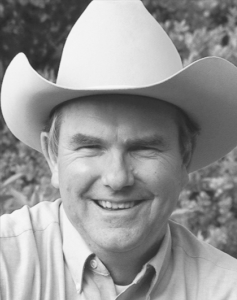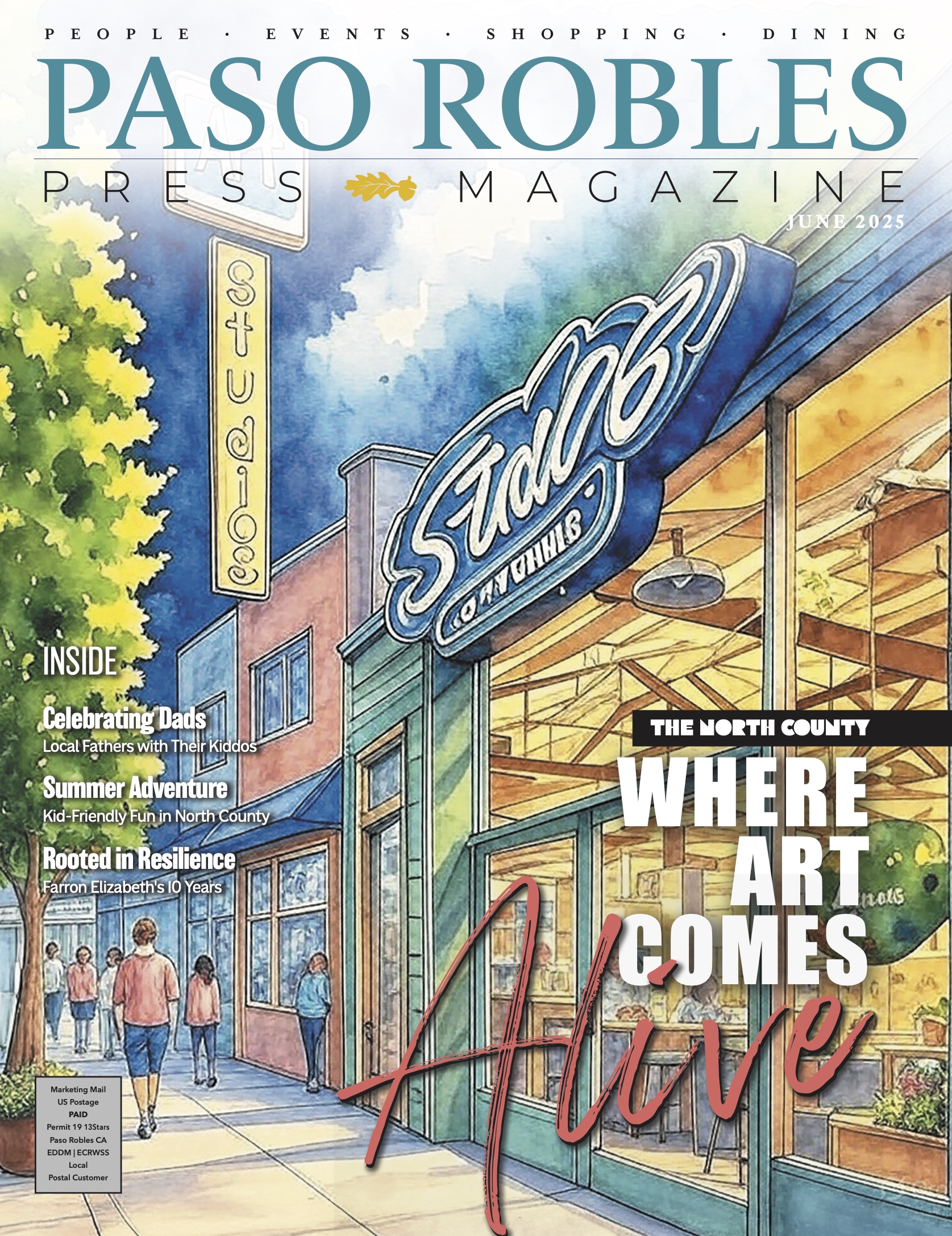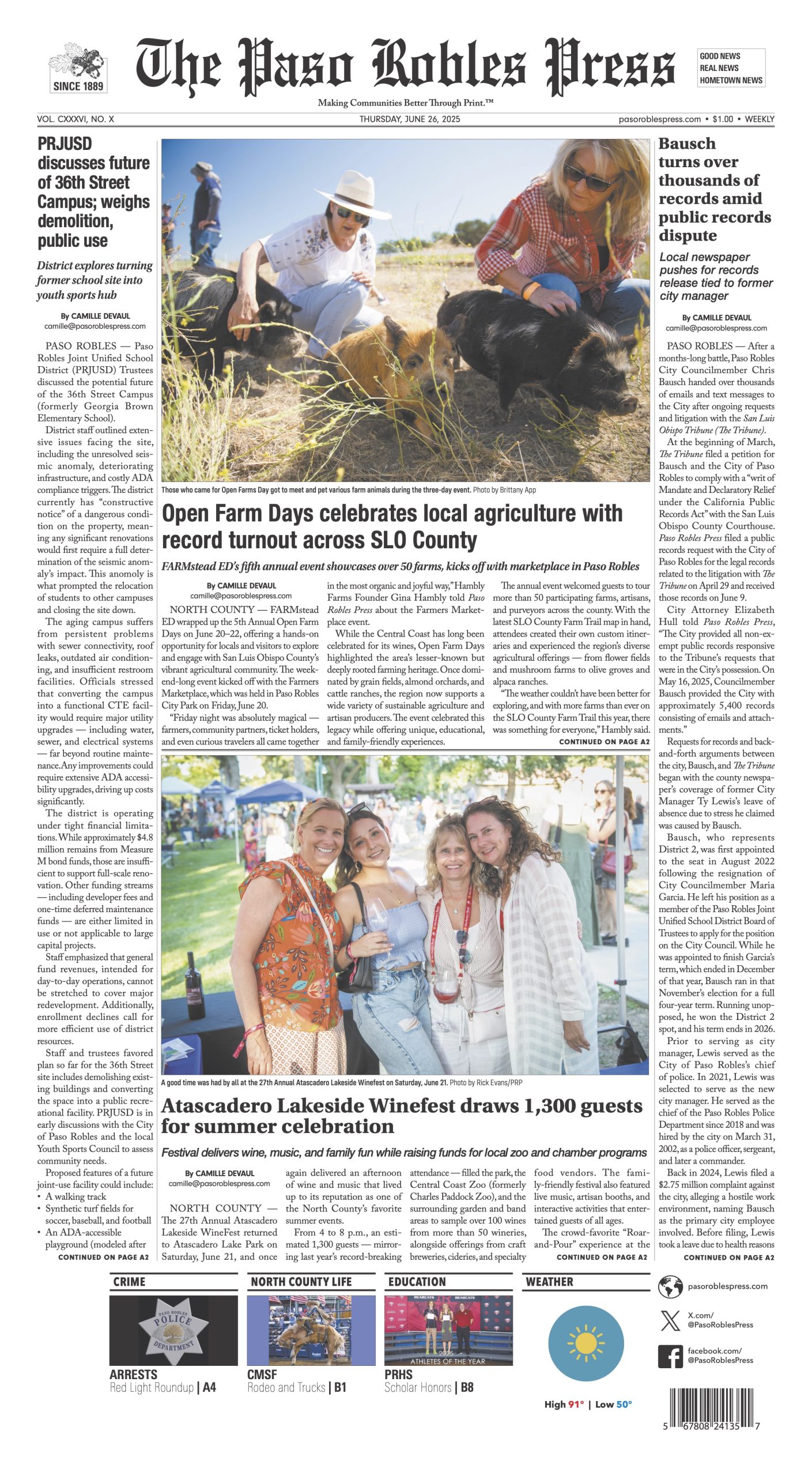by Lee Pitts
For some time now, cow country has been invaded by hordes of Silicon Valley nerds and geeks trying to peddle their technological wares. Finally, they may have come up with something that every cowboy in America can get excited about.

Can you, in your wildest dreams, imagine that we’ll no longer need fences? That’s right, no more riding fence, no more horses getting cut up, no more smashed thumbs from pounding fence staples, no more wire to stretch, no more sliced and diced arms and hands are torn up by the “Devil’s hatband,” no more having to fence across creeks and no more neighbors letting “their” fences fall down? And here’s one result women and children who get caught riding shotgun in the pickup should be ecstatic about… no more tight wire gates to open.
A company called Vence® promises to make all that possible. No doubt you’ve heard how electrified collars are keeping dogs inside their own yard by giving them a shock when they run up against an invisible wall of electric current, well, Vence® is now doing the same thing for cows.
This is not a pipe dream but a tool that has been employed on an Oklahoma ranch with good results for two years now. As I understand it, cows are fitted with a collar with a battery pack that lasts two years. A solar-powered base station is strategically placed on the ranch that builds an electric wall with a potential radius of nine miles! Then a cowboy sitting in his pajamas back in the bunkhouse can virtually establish the boundaries using his cell phone or computer. When he wants to move the cows, he just redraws the fence, and the cows move to fresh grass, all without catching a horse or playing hide and seek with cows.
Using such a system, a rancher can employ the Savory grazing system, fence off cattle from getting into nearby crops or creeks, and all without digging a single post hole.
Sounds almost to good to be true, doesn’t it?
Vence® has improved on the doggie virtual fence by building a feature into their “Herd Manager” system that sounds a tone on the cow’s collar that increases in volume the closer they get to the virtual fence. If they creep too close, then they get a mild shock. It takes about two weeks to train the cows to the system, and Clay Burtrum of Burtrum Cattle Company in Oklahoma says, “The girls have adapted quite well to their “necklaces.”
Despite all the benefits I mentioned, knowing ranchers as I do, I think the Vence® is going to be a hard sell where cowboys are concerned, just like the barbed wire was when it was first introduced. In the 1860’s most Texans saw barbed wire as a Yankee scheme that only benefited the industrial North at the expense of the agricultural South. Roaming gangs with colorful names like the Fence Cutters, Blue Devils, Knights of the Nippers, the Javelina’s, and the Land League cut new barbed wire fences whenever and wherever they found them.
It took a publicity stunt to convince ranchers that the “Viscous Wire” or “Obvious Wire,” as it was called, would work. A wheeler-dealer by the name of John “Bet-A-Million” Gates, who owned half interest in a hardware store in Texas, was one of the first to see the many advantages of barbed wire in keeping the cows out of the corn and the petunias. But he initially had a hard time convincing ranchers of the many advantages of Joseph Glidden’s wire known as “The Winner,” patented in 1873. So Bet-A-Million Gates built a barbed wire corral in a main San Antonio plaza and released into it a small herd of supposedly wild Texas Longhorns. He then took bets amongst the onlookers on whether or not the fence would hold. Then he handed two blazing torches to a rider who entered the corral cursing at the cattle in Spanish. To the amazement of the onlookers, the fence held, and Bet-A-Million Gates went on to make a very large fortune selling trainloads of the wire to new devotees of the barb.
It might take a similar stunt today for Vence® to convince ranchers that the virtual fence will hold their cattle. I know I’d buy a ticket to watch.











